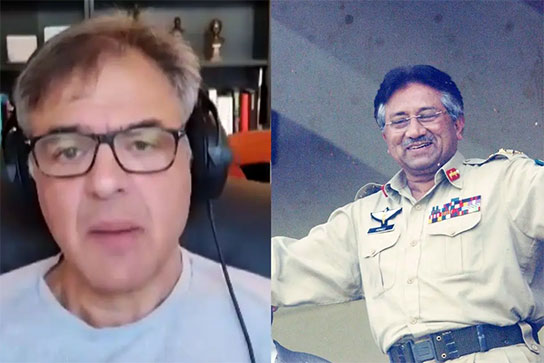On Sunday afternoon, the wide avenues of central Delhi were deserted. But there was a hub of activity near the majestic India Gate.
A small contingent of workers was busy digging a trench next to a tree-lined pond. A young man lifted soil in a wide bowl on this head, which he carried to the side, where two others helped him unload.
"The work here will not stop," remarked the young worker, a 28-year-old from Jaunpur district in Uttar Pradesh, sweat dripping down his masked-up face.
For ten days now, India's capital has been under lockdown, with its health system collapsing in the face of a wall of coronavirus cases. At least 2,267 people have died of Covid-19 in the past week - and this is just a fraction of the deaths since many are going uncounted. Day after day, families frantically look for hospital beds, which have run out, and hospitals, on their part, send SOS messages to the government about oxygen shortages which in some cases have led to deaths.
Amidst this devastation, one project remains unaffected: the Central Vista project.
A pet project of the Narendra Modi government, it aims to redevelop a 3.2-km stretch called the Central Vista that lies at the heart of Lutyens Delhi built by the British in the 1930s. It involves tearing down and rebuilding several government buildings, including iconic landmarks, and constructing a new Parliament at a total cost of Rs 20,000 crore.
When the government hastily floated tenders for the project in September 2019, it was criticised as an exercise in vanity. This criticism has grown even more acute over the past year as the coronavirus pandemic ravages the country's health systems and the economy.
As some have pointed out, the amount the government is spending on the Central Vista project would have been enough to build thousands of oxygen generation plants. The cost of 162 oxygen generation plants being built by the central government is Rs 201 crore. In contrast, the budget for the new Parliament building itself is nearly five times more at Rs 971 crore.
But the mounting criticism has left the government unmoved. On April 20, it invited bids for the construction of three buildings on the plot where the Indira Gandhi National Centre for Arts currently stands. Meanwhile, work on the avenue redevelopment continues even as the rest of the city shuts down.
Currently, only construction projects which have workers staying on the site are permitted to operate in Delhi as per lockdown guidelines. But an exception has been made for the Central Vista project, which has been declared an "essential service", government correspondence accessed by Scroll.in shows.
Permission to operate 180 vehicles
On April 16, when the city saw a weekend curfew, the Central Public Works Department, which is overseeing the project, wrote to the Delhi Police. It said avenue redevelopment work under the Central Vista project, awarded to Shapoorji Pallonji and Company Private Limited, is "of time bound nature and is to be completed before 30th November, 2021", and therefore, the company had been directed to carry out the work "during all three shifts".
The letter requested the police to allow the company to "ferry their workers to and fro from their labour camp at Sarai Kale Khan through their own buses during curfew period".
In response, on April 19, the day the capital went into a longer lockdown, the deputy commissioner of police for New Delhi district issued movement passes for 180 vehicles engaged in the project work to operate during the lockdown. The deputy commissioner's letter stated that the movement passes had been granted in the "essential services" category.
In a text message on Sunday, a spokesperson of the Central Public Works Department told Scroll.in: "We have made limited arrangement for stay of labour at site and also got permission for movement of labour from labour camps."
The next day, the spokesperson amended the comment to say that the project had reached a standstill. "Only critical activities are going on," he said on the phone. "As of now, only those workers who are on the site are allowed, workers from outside are not allowed."
Trapped in Central Vista without wages
The fear of the coronavirus was evident among the workers who were aware that the pandemic was rampaging through the city as well as their home states. Many said they wanted to be with their families.
"There is fear because we have our families in other places and we need to take care of them," said the worker from Jaunpur, who had been working on the project since February. "I do not have a problem going back [to Uttar Pradesh], but if anything happens to me, then my family cannot come here," he added.
Source: https://scroll.in/
As Covid-19 Devastates Delhi, Central Vista Project Declared An Essential Service, Work Continues






